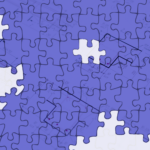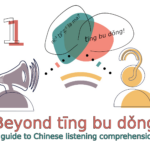Articles in the ‘Science and research’ category
-
Habit hacking for language learners
Habits are routines that become smooth and effortless with repetition. They are essential for managing daily life efficiently, and by developing the right habits for learning Chinese, you can learn more with less effort!
Read → -
Learning to hear the sounds and tones in Mandarin
As infants, we perceive the world without categories. Learning our first language forms sound categories, aiding understanding but losing other sound distinctions. As adults learning a second language, we need to regain this ability. But how?
Read → -
How to learn Chinese in the long term with intrinsic motivation
While strong motivation doesn’t necessarily accelerate your learning or improve your memory, without it you won’t spend enough time learning Chinese. So how can you stay motivated for months, years and even decades?
Read → -
Outlier Chinese Character Masterclass review: Understand more, learn faster, remember longer
Mastering Chinese characters, whether you find them enchantingly beautiful or overwhelmingly complex, is essential for literacy in Chinese. Outlier Linguistics will help you understand how the Chinese writing system works, making it easier to learn!
Read → -
Beyond tīng bu dǒng, part 5: Becoming a better listener as a student of Chinese
Many things influence listening comprehension in Chinese, some are related to the language, and some to the situation, but some are also related to you as a listener. How can you become a better listener in Mandarin?
Read → -
6 benefits of learning Chinese through sports
The general benefits of physical activity are well-known, but the more specific benefits for learning languages are often overlooked, so let’s have a look at 6 benefits of learning Chinese through sports!
Read → -
Beyond tīng bu dǒng, part 4: Learning to process spoken Mandarin quickly and effortlessly
Our ability to consciously process spoken Mandarin is limited; the only way forward is to listen so much that processing becomes automated.
Read → -
Beyond tīng bu dǒng, part 3: Using what you already know to aid listening comprehension in Chinese
Listening comprehension is not only about extracting information from the spoken Mandarin you hear, it’s also about applying what you already know and expect.
Read → -
Beyond tīng bu dǒng, part 2: From sound to meaning in Mandarin
Listening comprehension in Mandarin is complex, and the more I learn about it, the more amazing it seems that we’re able to understand anything at all.
Read → -
Beyond tīng bu dǒng, part 1: A guide to Chinese listening comprehension
Listening comprehension is essential when learning Chinese, but if we want to improve, we need to move beyond tīng bu dǒng and identify what the problem really is.
Read →









